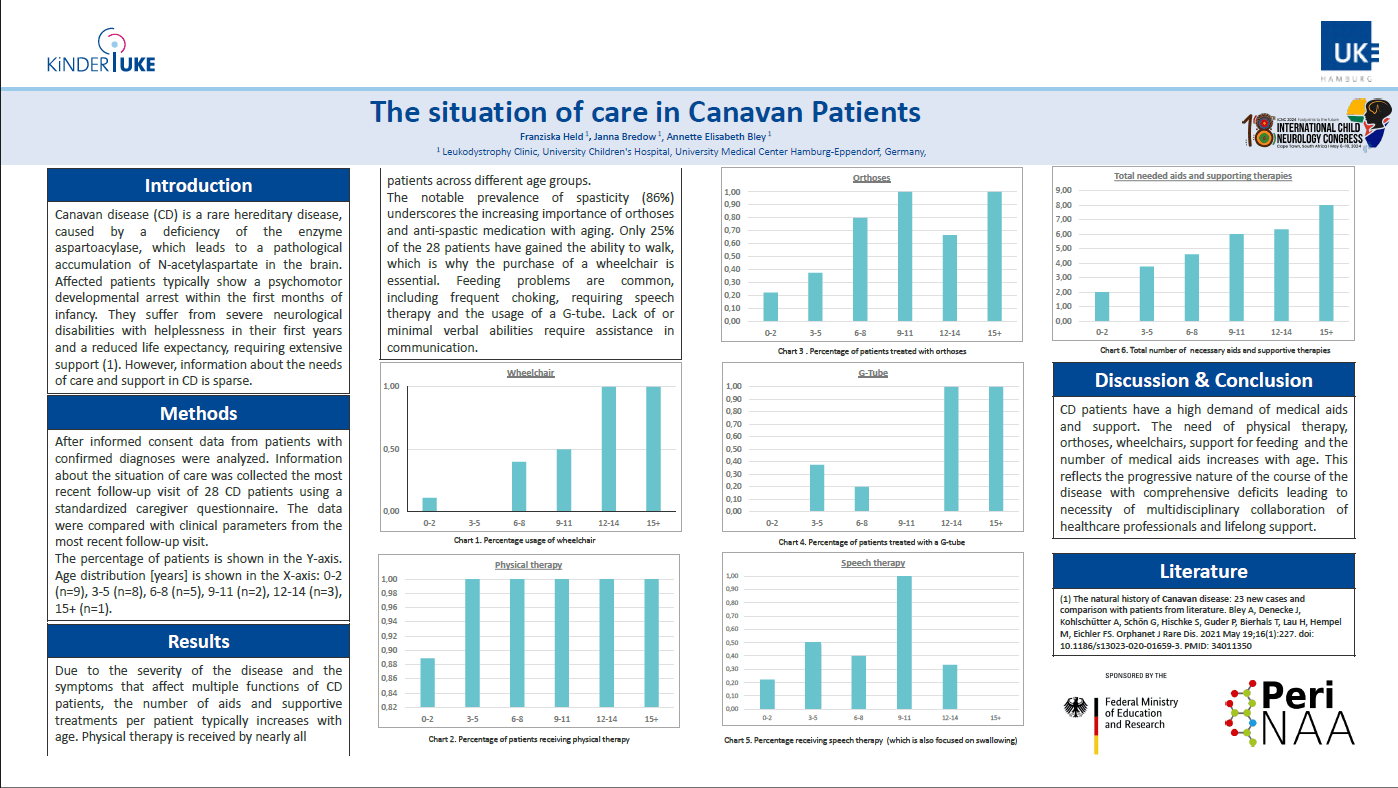The Situation Of Care In Canavan Patients
The situation of care in Canavan Patients Franziska Held, Janna Bredow, Annette Bley Leukodystrophy Clinic, University Chilren´s Hospital, University Medical Center Hamburg-Eppendorf, Germany
Introduction: Canavan disease (CD) is a rare hereditary disease, caused by a deficiency of the enzyme aspartoacylase, which leads to a pathological accumulation of N-acetylaspartate in the brain. Affected patients typically show a psychomotor developmental arrest within the first months of infancy. They suffer from severe neurological disabilities with complete helplessness in their first years and a re-duced life expectancy, requiring extensive support. However, information about the needs of care and support is sparse. Methods: We collected information of care in patients and correlated these findings with clinical pa-rameters. Results: Due to the severity of the disease and the symptoms that affect multiple functions of CD pa-tients, they require care and support in various areas. Important physiological abilities may be affect-ed necessitating extensive support for feeding and respiration. Lack of or minimal verbal abilities re-quire assistance in communication. Early psychomotor arrest results in the need for domestic aids like wheelchairs, lifts, and care beds. Symptoms such as epileptic seizures, spasticity, constipation, and swallowing problems cause the need of physical therapy and a variety of medication. Helplessness correlates with the requirement of long-term care and health insurance support. Conclusion: The care for Canavan patients requires an interdisciplinary collaboration of healthcare professionals. Advanced treatments such as gene therapy and early diagnostic methods, as newborn screening, are necessary to lower the burden of disease.
Franziska Held
University Hospital Hamburg-Eppendorf
Germany
Janna Bredow
University Hospital Hamburg-Eppendorf
Germany
Annette E Bley
University Hospital Hamburg-Eppendorf
Germany

Franziska Held
University Hospital Hamburg-Eppendorf
Germany